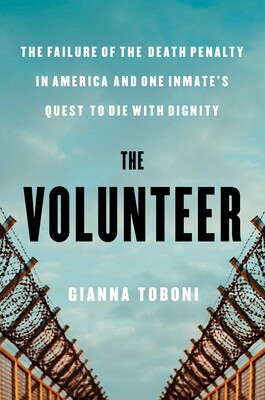My musings on tech and life
Book Review: The Volunteer
Quick Information at a glance:
- ISBN: 9781668033012
- Author: Gianna Toboni
- Pages: 320
- While I did copy this review on my Librarything profile, please consider this the official review.
The Book, My thoughts, and is it a good read.
“The Volunteer” is a sobering book about the capital punishment machine in America, the attempts to whitewash it in the form of lethal injections, the fight between departments of corrections and the anti-capital groups trying to get restrictions on how the drugs can be used in correctional settings, and the story of Scott Dozier – a former death row inmate in Nevada who tried to force the state to execute him – as told by Gianna Tobini, a Vice reporter.
…Adding Slashpages to my sites
I spent some time today working on getting my blog updated, including adding the list of Slashpages to my blogs that I manage.
New pages include:
- /about – a page all about me…
- /ai – a page on my website that describes how you use, or don’t use, AI.
- /cannon – an encapsulation, in list form, of those things that have most shaped me. A sort of annotated bibliography of influences.
- /colophon – a page that describes how the site is made, with what tools, supporting what technologies
- /death – a page with instructions for family and friends in case of my demise
- /defaults – a list of the apps I use for various tasks, usually based on the list from Hemispheric Views 097
- /ideas – things I want to make, or concepts am considering
- /interests – what I’m passionate about and what excites me.
- /junk – host an indie-web yardsale
- /nope – a list of things I don’t like or don’t want to do
- /shoebox – A bit of website where for the odds-and-ends.
- /someday – things I someday would like to achieve, accomplish, explore, experience, create, learn, understand
- /verify – a page on my website to list and prove my online identities
- /where – a place to let others know about my current location
- /why – an opportunity to say what I care about, what direction you’re heading, and how I hope to exist in the world. A minifesto on the purpose of my site, or my work
- /yep – a list of things I agree with or will do
A lot of content for one evening…
…My System for Moving
I’ve moved around a lot in these last eight or so years. Cincinnati to Dallas to Austin to Dallas to Cincinnati to Dallas to Chicago to Tampa to Dallas to Boulder back to Chicago back to Dallas. I have three main categories of things:
- Stuff that I use everyday and is important to my day-to-day work and relaxation.
- Stuff that I use weekly and is too expensive to replace.
- Stuff that I occasionally use but don’t want to replace.
For items in the first category, they are items that fit into my media bag, my laptop bag, or my electronics duffle. These are things that I usually take everywhere with me.
…Quiet Evenings With the Radio
It’s not every night where I can sit and work on random projects until 1 in the morning, and it’s not every night where I can spend time talking strategy with my friends about how I’m trying to solve some home automation thing.
Tonight’s project was getting one of my older radios back up and working again. It had been relegated to a random storage bin, and I’ve finally been able to get it out of the bin, work on things, and bring it back to life. It’s not in the best shape, location, or tune, but, these are things that I can solve with time.
…I need to get better at writing blog posts.
So, we’re in 2025. I’ve been taking a bit of a social media hiatus, but, I’m still around. I’ve been doing a lot of work at my local makerspace, mainly learning things that are outside of my wheelhouse – ceramics, jewelry making, and printmaking. A lot of folks have been asking for advice on how to deal with things at the makerspace and while I’ve been helping and providing guidance the best that I can, I don’t really want to make the makerspace my ‘second job,’ nor do I want to work on things before I work on things…so, we’ll see how this goes.
…